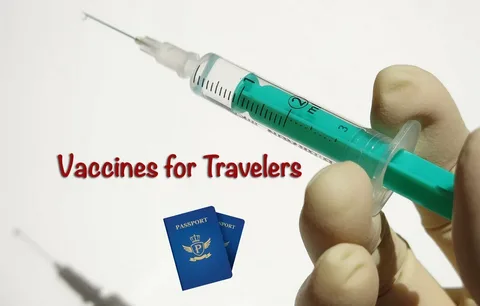Traveling to new destinations is exciting, but it also comes with health considerations. Vaccinations are one of the most effective ways to stay safe during international trips. However, misinformation and myths about travel vaccines can create unnecessary fear or complacency. In this article, we are busting some common travel vaccination myths and exploring what science really says about staying protected.
Why Travel Vaccinations Matter
Many travelers underestimate the importance of vaccines when visiting foreign countries. Diseases like yellow fever, hepatitis A, typhoid, and Japanese encephalitis are still prevalent in certain regions, and vaccination remains the best preventive measure. According to the World Health Organization, vaccines save millions of lives every year and can prevent outbreaks from spreading across borders.
By understanding the facts, travelers can make informed decisions about their health and avoid unnecessary risks.
Myth 1: “I’m Healthy, So I Don’t Need Vaccines”
One common misconception is that strong immunity alone is enough to fend off diseases abroad. Science tells a different story. Even healthy adults are susceptible to infections they haven’t been exposed to before. Vaccines prime the immune system to recognize specific pathogens and respond effectively, reducing the risk of severe illness.
Travel vaccination myths busted: skipping vaccines because you feel healthy is one of the most dangerous assumptions a traveler can make.
Myth 2: “Vaccines Are Risky and Cause Serious Side Effects”
Some travelers avoid vaccines due to fears of side effects. While mild reactions like soreness or low-grade fever are common, severe side effects are extremely rare. Extensive clinical studies and global monitoring show that the benefits of vaccination far outweigh the risks. Healthcare professionals follow strict guidelines to ensure vaccines are safe for different age groups and health conditions.
Myth 3: “I Don’t Need Vaccines for Short Trips”
Even a brief visit to an affected area can expose travelers to harmful pathogens. Diseases like hepatitis A or typhoid can be contracted through contaminated food and water within days. Vaccines provide protection during the entire trip, regardless of its duration. Science shows that even a single exposure can lead to serious illness, making vaccination essential.
How to Stay Protected: Evidence-Based Tips
- Consult a Travel Health Professional: Ideally 4–6 weeks before your trip.
- Stay Updated: Ensure routine vaccines like measles, mumps, and tetanus are current.
- Follow Destination Guidelines: Check recommended vaccines for your specific location.
- Practice Hygiene: Combine vaccines with safe food, water, and mosquito precautions.
By relying on scientific evidence rather than myths, travelers can enjoy peace of mind and safer journeys.
Conclusion
Travel vaccination myths busted: misconceptions about immunity, side effects, and trip duration should not deter anyone from getting vaccinated. Science clearly demonstrates that vaccines are a crucial tool for protecting global travelers. Preparing with the right vaccinations is not just smart—it’s essential for a safe and healthy adventure abroad.

